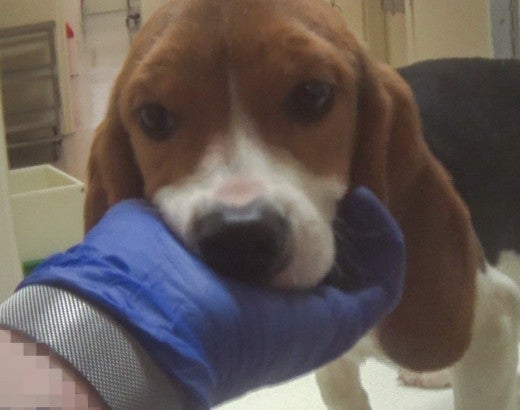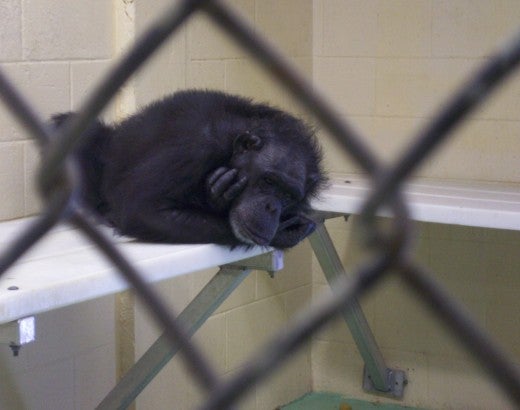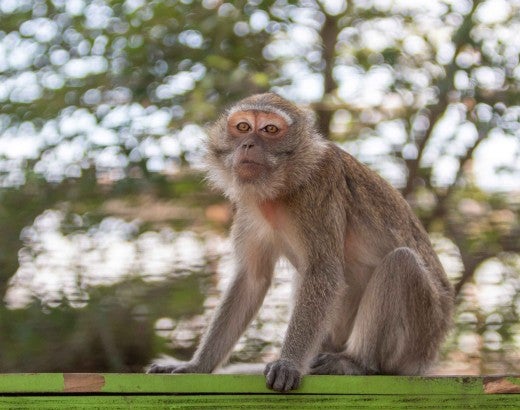This threat to monkeys is especially surprising given that the funding bills contain valuable language supporting the development and use of non-animal approaches at the Environmental Protection Agency, the Food and Drug Administration and the National Institutes of Health.
Among other requirements, the bills direct the EPA to report on the progress it has made since its 2021 commitment to reduce animal testing. If approved, the agency would be required to provide information on its annual costs of animal testing, develop a timeline for the further reduction and replacement of animal experiments, and commit to rehoming animals once the experiments are over.
We are delighted that both the House and Senate appropriators appear to support reducing animal experiments. A strong bipartisan consensus is crucial in this area because advancing the development, validation and widespread acceptance of non-animal methods will require clear direction and significant commitments from the federal government.
The proposed federal funding packages also direct the FDA to use existing funds to reduce animal testing, to advance non-animal methods in a measurable way and to provide an update on its New Alternative Methods Program.
Appropriators encouraged NIH to prioritize non-animal methodologies as the preferred option for biomedical research when it is not appropriate to use human volunteers. The packages provide continued support for NIH programs designed to facilitate inter-agency efforts to develop and implement non-animal testing methods, and to reduce, refine and replace animal experiments in federal research. Appropriators also directed NIH to report on efforts to reduce and replace dogs and cats in NIH-funded experiments.
In another positive development, the Senate urged NIH to send chimpanzees held at a former research facility in New Mexico to Chimp Haven, a specially designed sanctuary created when Congress passed the CHIMP Act for the housing of chimpanzees previously used in experiments. We have been working to support the transfer of these chimps for years. We are thrilled at the prospect of Congressional action in support of sending the chimps to a proper home.
Some key developments for the U.S. Department of Agriculture will impact the welfare of animals in laboratories and research breeding facilities, too. The proposed funding bills direct the Animal and Plant Health Inspection Service to continuously update information on the total number of inspections and violations of the Animal Welfare Act on its Animal Care website. In addition, the bills direct APHIS to post detailed reports when animals are confiscated from individuals and facilities that violate the Animal Welfare Act.
Importantly, appropriators included language that supports the Department of Justice’s and the USDA’s joint commitment to enforcing the Animal Welfare Act and directs the DOJ to continue coordinating with the USDA on these cases. This cooperation has already made it clear that enhanced multi-agency collaboration can make a decisive difference to animal welfare. This was evident in the Envigo case, which recently led to a historic settlement with the largest fine ever levied for violating the Animal Welfare Act. The DOJ has also taken action in other significant cases, including those against big cat exhibitors Jeffrey and Lauren Lowe and licensed dog breeder Daniel Gingerich in Iowa who racked up 100 animal welfare violations in just six months.
This kind of multi-agency teamwork is the focus of the Better Collaboration, Accountability, and Regulatory Enforcement (CARE) for Animals Act. This bill would give the DOJ more tools to hold Animal Welfare Act violators accountable, including the ability to pursue license revocations, civil penalties and, where appropriate, the use of seizure/forfeiture in cases in which animals are suffering because of evident animal welfare violations.
So, it is even more surprising, given all these promising developments, that NIH’s proposed funding request of $10 million to expand monkey facilities seems to be moving ahead. The decision of Senate appropriators to grant $30 million, tripling NIH’s request, was shocking.
We firmly believe the moral and practical burdens of using monkeys in research and testing are so immense that further investments in this area will not find favor with the American public. The House of Representatives agrees with us as their version of the bill that funds NIH explicitly rejects money for the National Primate Research Centers and Caribbean Primate Research Center, which are responsible for breeding and distributing monkeys used in NIH research.
The fight is not over, and we need the House position to prevail on this. Tell Congress to reject funding for more monkey experiments in the final version of the FY25 federal funding bill.
Whether it involves strengthening welfare standards at institutions that use animals or advancing the drive to reduce and eliminate animal experiments, we’ve got some distance to go. But we’re making great gains, and in the appropriations process, we’ve picked up some real momentum in our campaign to make such use of animals a thing of the past.
Sara Amundson is president of the Humane Society Legislative Fund.




